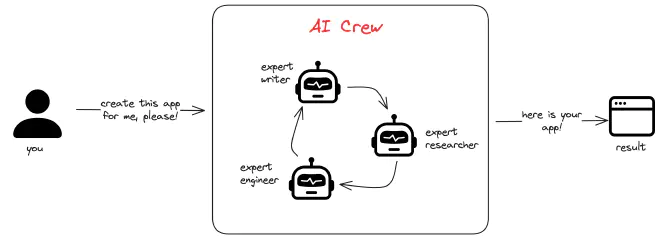Deciding to enroll in an online DevOps course is an exciting first step toward career transformation. However, the abundance of options, technical requirements, and learning strategies can feel overwhelming for beginners. This step-by-step guide simplifies the process, helping you navigate from initial decision through successful course completion. Whether you’re transitioning careers or advancing existing expertise, this roadmap ensures you start your online DevOps course confidently and strategically.
Step 1: Assess Your Current Skills and Prerequisites
Before selecting an online DevOps course, honestly evaluate your technical foundation.
Beginner skills assessment examines your comfort with fundamental concepts. Do you understand basic Linux command-line operations? Can you navigate terminal environments confidently? Have you worked with version control systems like Git? If these concepts feel foreign, seek a DevOps course explicitly designed for beginners that covers prerequisites.
Mid-level assessment applies if you have some IT or development experience. Can you read and write basic scripts in Python or Bash? Do you understand networking fundamentals like IP addresses, DNS, and HTTP? Have you deployed applications in any environment? If you answered yes, intermediate-level online DevOps courses may suit you better.
Advanced assessment considers whether you already possess significant development or operations experience. Have you managed production environments? Do you understand system administration? Can you write complex scripts? If so, advanced online DevOps courses focusing on specialized tools might accelerate your learning.
This honest self-assessment prevents frustration and ensures you select an appropriately-leveled online DevOps course that builds on your existing foundation rather than wasting time on redundant material.
Step 2: Define Your Learning Goals and Objectives
Clarity about your desired outcomes shapes your entire online DevOps course experience.
Career transition goals require different online DevOps courses than skill enhancement. If you’re changing careers, prioritize courses offering comprehensive coverage, hands-on labs, and certificate credentials that impress employers. If you’re deepening existing expertise, specialized online DevOps courses focusing on particular tools or practices might suffice.
Specific skill targets guide your selection. Are you interested in containerization with Docker and Kubernetes? Infrastructure automation with Terraform? CI/CD pipeline development? Cloud platform expertise? Different online DevOps courses emphasize different skill domains. Clarity about your priorities ensures you select aligned programs.
Timeline expectations matter significantly. Are you targeting completion within three months for an imminent job change? Or are you planning a year-long journey balancing learning with full-time employment? Your timeline influences which online DevOps course format and intensity level suits you.
Career outcome expectations should be realistic. Most online DevOps courses prepare you for entry to mid-level roles, not immediate senior positions. Set expectations about the professional trajectory resulting from your online DevOps course completion.
Step 3: Research and Compare Online DevOps Courses
Thorough research prevents costly mistakes and ensures you select quality programs.
Read comprehensive reviews on platforms like Coursera, Udemy, and independent tech blogs. Look for reviews specifically mentioning practical value, instructor quality, and career outcomes. Discount overly positive reviews lacking specific details and focus on balanced assessments discussing both strengths and limitations.
Examine course curriculum in detail. Does it cover tools relevant to your goals? Does the progression make logical sense? Are there prerequisites you haven’t met? Quality online DevOps courses provide detailed syllabi, allowing you to review content before enrolling.
Check instructor credentials and experience. Verify instructors have actual DevOps experience beyond academic knowledge. Do they work in the industry currently or recently? Have they solved real production problems? Experienced instructors translate practical knowledge into your online DevOps course.
Compare pricing and value across platforms. Some online DevOps courses cost hundreds of dollars; others are affordable through subscription platforms. Consider total cost including any necessary exam fees or additional resources. Sometimes expensive doesn’t mean better, and budget-friendly options can be exceptional.
Investigate community and support available within the online DevOps course. Are there active discussion forums? Do instructors respond to questions? Is peer support available? Community engagement significantly enhances learning outcomes.
Step 4: Prepare Your Technical Environment
Before starting your online DevOps course, ensure your technical setup supports learning.
Hardware requirements vary by online DevOps course. Most require only a modern laptop with reasonable processing power and internet connectivity. However, some hands-on intensive programs benefit from additional RAM (8GB minimum; 16GB ideal) and adequate storage (50-100GB free space).
Operating system choice matters for practical work. Linux proficiency is fundamental to DevOps, so Linux-native systems provide advantages. Windows users should install Windows Subsystem for Linux or virtualization software. Mac users have convenient terminal access. Regardless of your platform, ensure you can run Linux environments for your online DevOps course labs.
Internet connectivity must be reliable for streaming lectures and cloud lab access. High-speed broadband (25+ Mbps) ensures smooth video playback and cloud platform interaction. Test your connection before starting your online DevOps course to prevent frustrating delays.
Account creation with cloud providers accelerates hands-on learning in your online DevOps course. Create free-tier accounts with AWS, Azure, or GCP before beginning coursework. Familiarize yourself with basic navigation and setup procedures.
Text editor and IDE selection streamlines your online DevOps course workflow. Install Visual Studio Code or similar editors where you’ll write scripts and configuration files. Configure your development environment before coursework begins.
Step 5: Create a Structured Learning Schedule
Consistency determines success in online DevOps courses.
Determine weekly time commitment realistically. How many hours can you dedicate to your online DevOps course weekly without overwhelming yourself? Aim for 10-15 hours weekly, balancing intensity with sustainability. Most people can maintain 15 hours weekly for 3-6 months; fewer can sustain 25+ hours for extended periods.
Schedule specific study sessions treating them like non-negotiable appointments. Rather than vague plans to “study sometime,” block specific days and times. Morning or evening? Weekdays or weekends? Consistency builds momentum and makes learning a habit rather than a chore.
Break coursework into manageable chunks. Instead of marathon eight-hour sessions, complete multiple shorter sessions (90 minutes optimal). This prevents burnout and improves information retention.
Plan breaks and rest days. Continuous intensity leads to diminishing returns and burnout. Include at least one rest day weekly where you don’t engage with your online DevOps course.
Step 6: Engage Actively with Course Materials
Passive video consumption wastes time in your online DevOps course. Active engagement transforms information into skills.
Take detailed notes during video lectures. Don’t transcribe everything; instead, note key concepts, interesting points, and questions to research later. This active engagement keeps your mind engaged rather than drifting during passive watching.
Pause and practice throughout your online DevOps course. When instructors demonstrate concepts, pause videos and replicate their work independently. Make mistakes intentionally to understand error messages. This hands-on practice embeds knowledge far better than observation.
Complete all labs and exercises provided in your online DevOps course. Don’t skip this crucial step. Labs provide the practical experience transforming theoretical knowledge into applicable skills. Struggle through challenging exercises rather than watching solutions.
Extend assignments beyond required specifications. If your online DevOps course asks to containerize an application, containerize additional applications. If you’re instructed to create a CI/CD pipeline, build multiple pipelines with increasing complexity. This extension deepens learning and creates impressive portfolio pieces.
Maintain a learning journal documenting challenges, solutions, and insights from your online DevOps course. This practice clarifies understanding, tracks progress, and creates reference material for future challenges.
Step 7: Build a Portfolio During Your Online DevOps Course
Credentials matter, but demonstrated skills matter more to employers.
Document your projects created during your online DevOps course. Screenshot configurations, capture pipeline outputs, document automation scripts. These artifacts become portfolio evidence of your capabilities.
Create GitHub repositories containing coursework and projects. Clean, well-documented code repositories demonstrate professionalism and technical competency to potential employers reviewing your online DevOps course outcomes.
Write blog posts explaining concepts and tools learned in your online DevOps course. Teaching others reinforces your understanding while creating searchable content establishing expertise.
Step 8: Complete and Continue Beyond Your Online DevOps Course
Your online DevOps course completion marks a milestone, not a destination.
Pursue relevant certifications validating skills developed in your online DevOps course. AWS, Azure, and other credentials add credibility to your completion certificate.
Practice continuously after your online DevOps course. Apply learning to actual projects, contribute to open-source DevOps tools, and explore advanced topics.
Update your resume and LinkedIn highlighting skills from your online DevOps course. Actively seek positions leveraging your newly acquired expertise.
Conclusion
Starting a DevOps Certification requires thoughtful preparation and intentional engagement, but the investment pays dividends throughout your career. By following these eight steps—assessing prerequisites, defining goals, researching thoroughly, preparing your environment, creating schedules, engaging actively, building portfolios, and pursuing continuous growth—you transform your online DevOps course from optional training into a career-launching platform. Remember that successful completion depends more on your effort and engagement than the specific online DevOps course selected. Start today, stay committed, and unlock the professional transformation awaiting through quality online DevOps course education.







